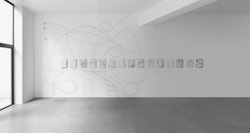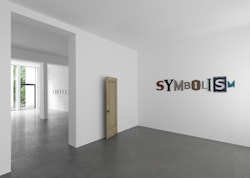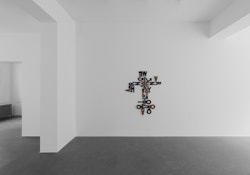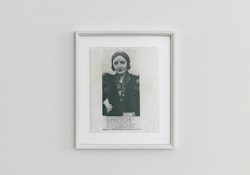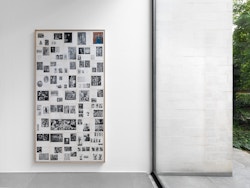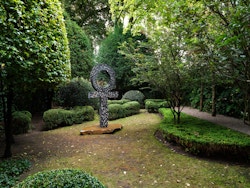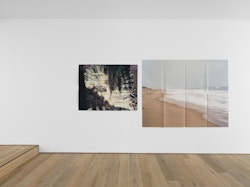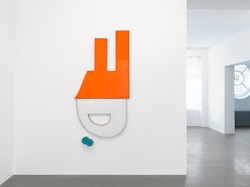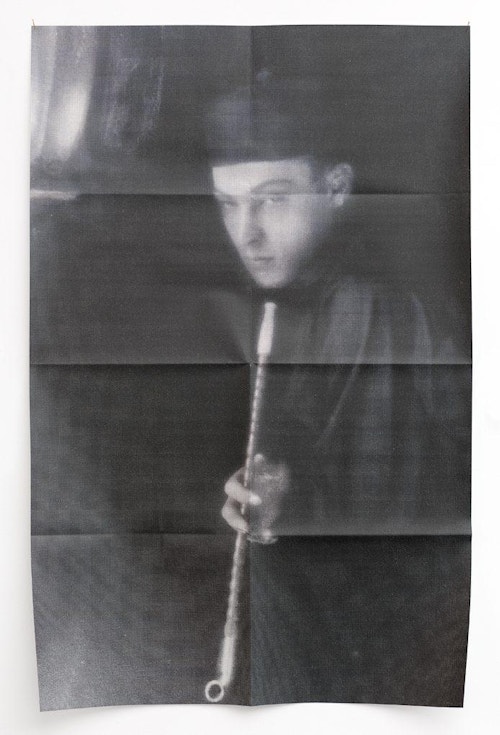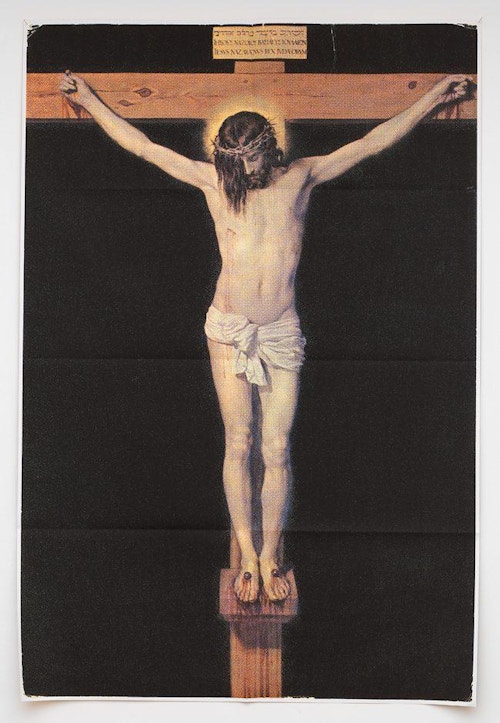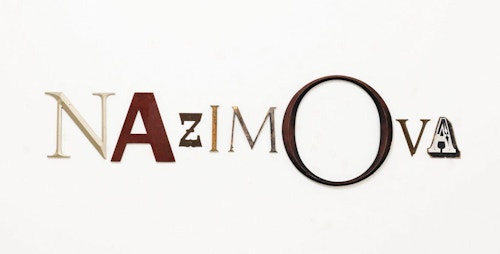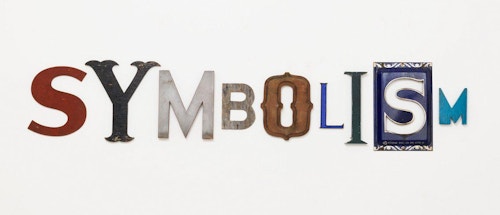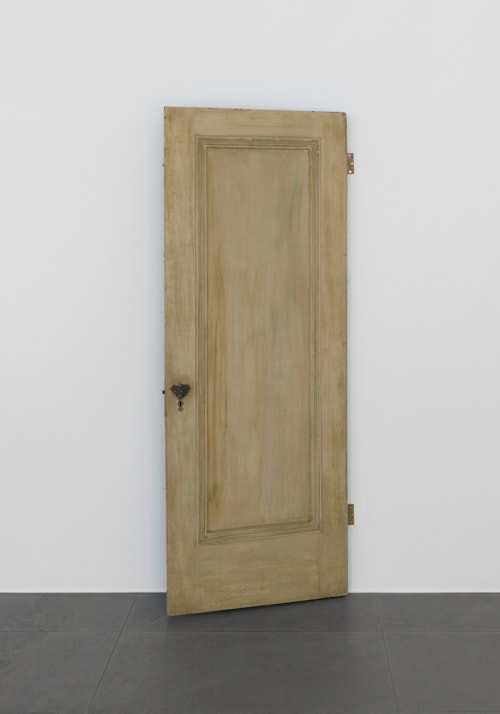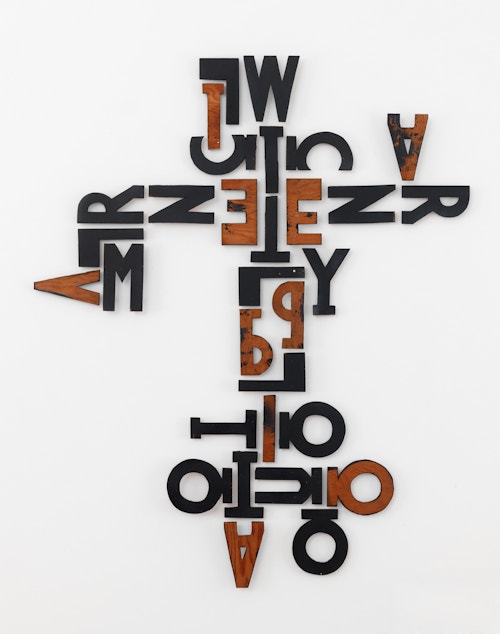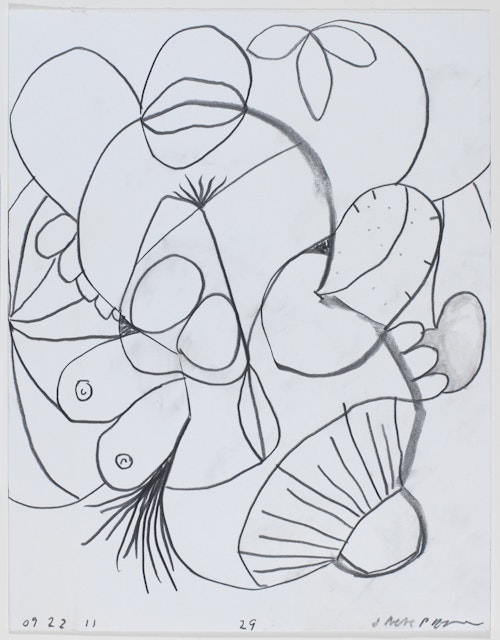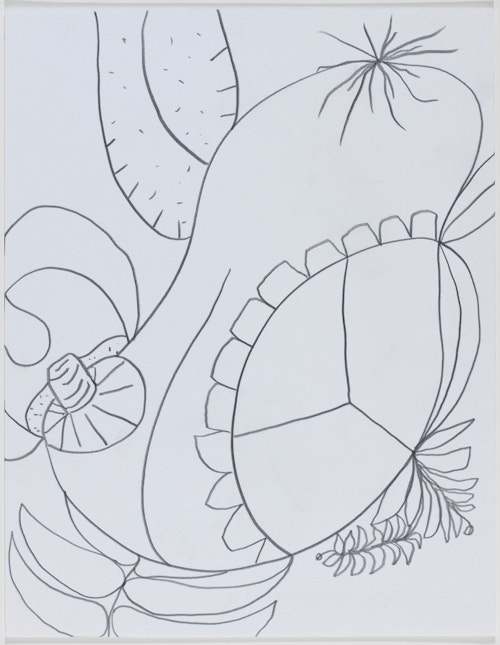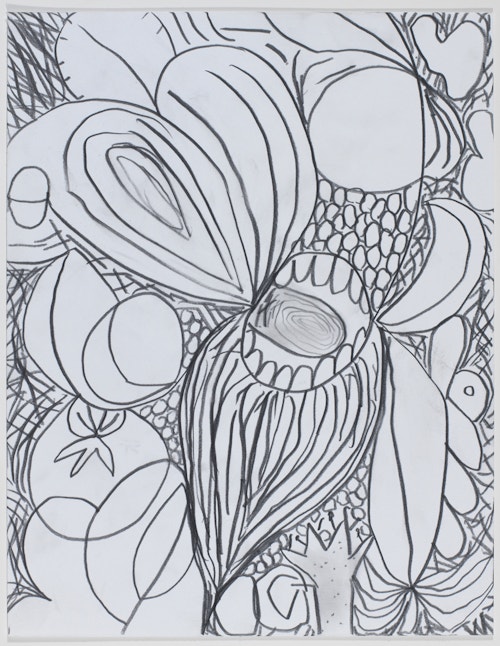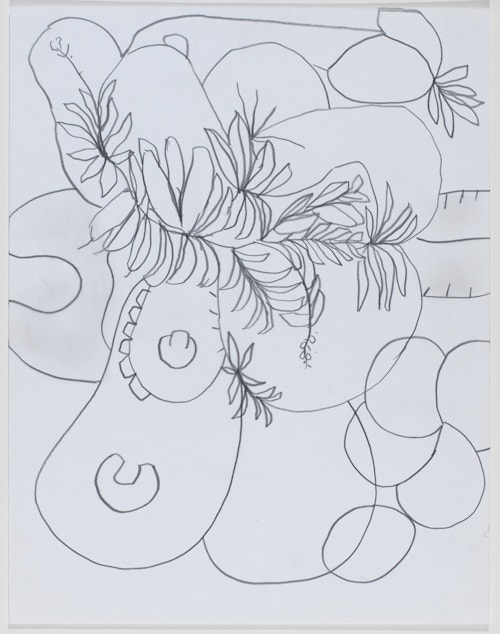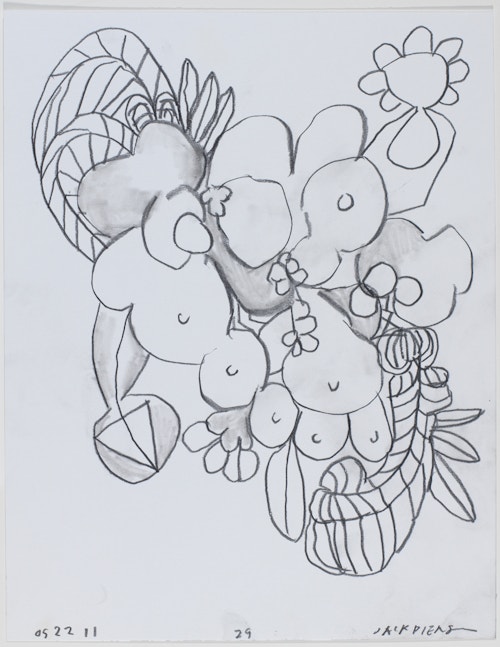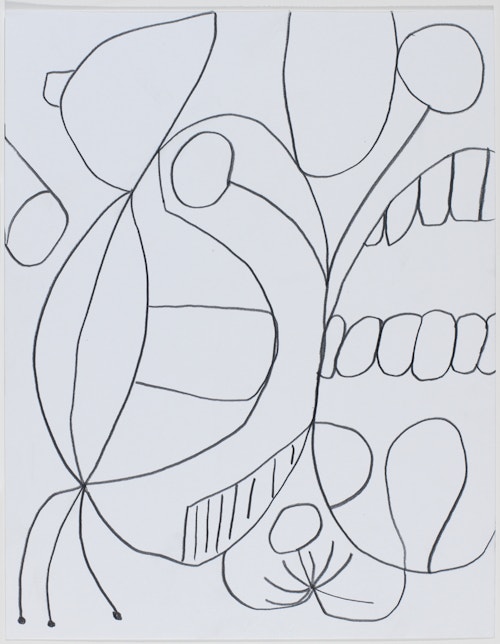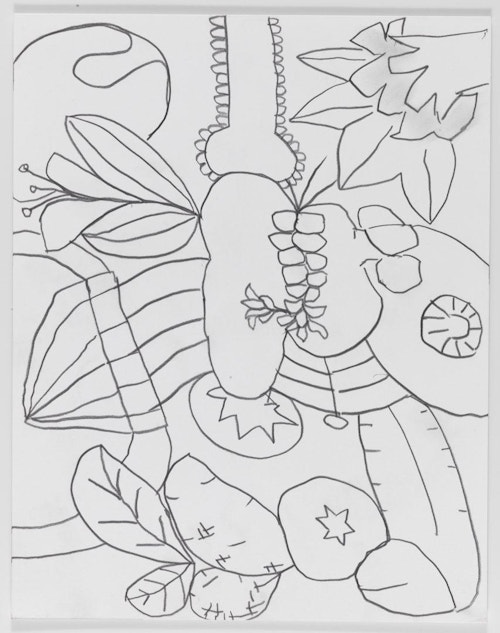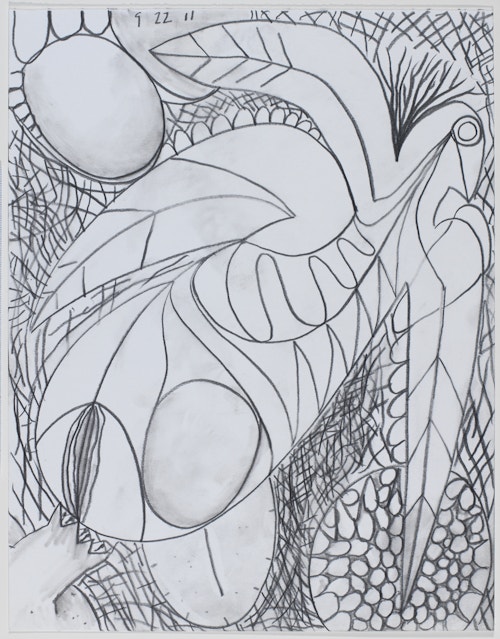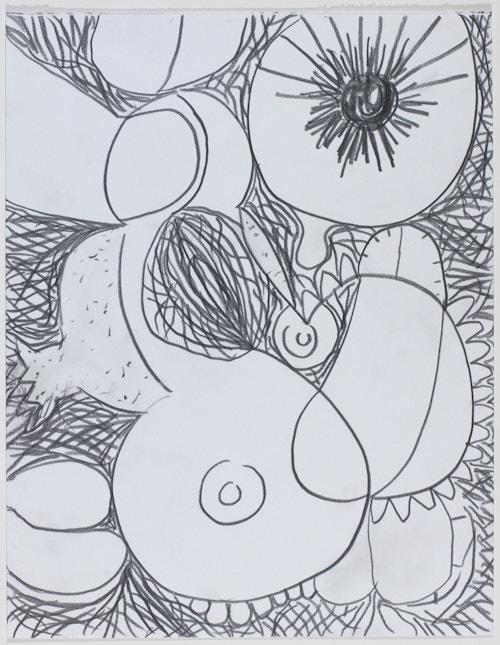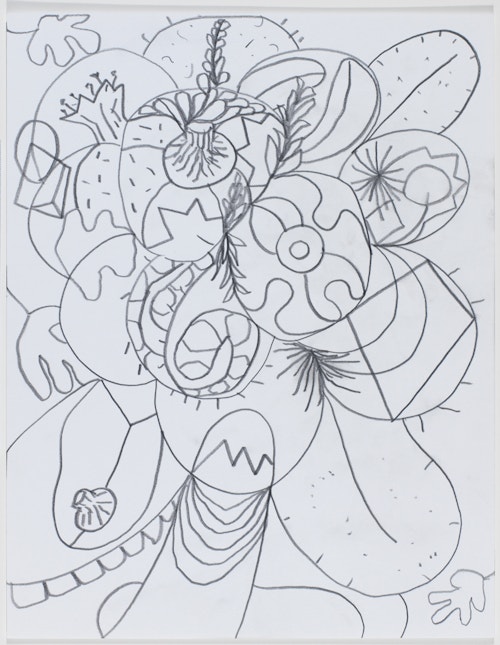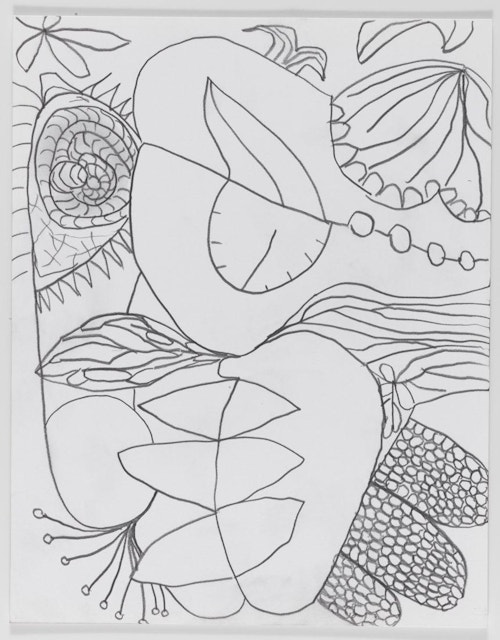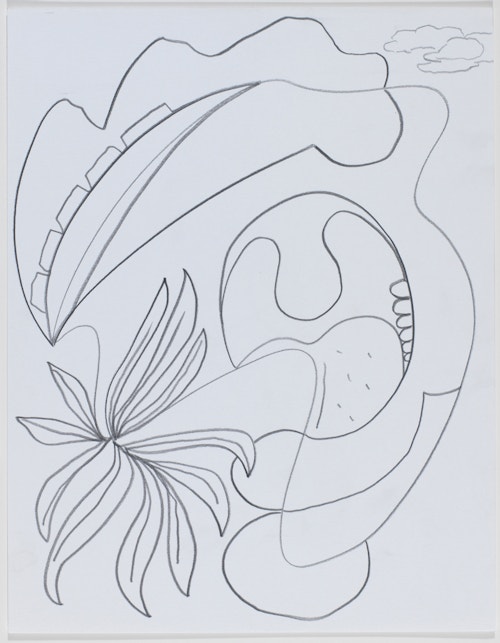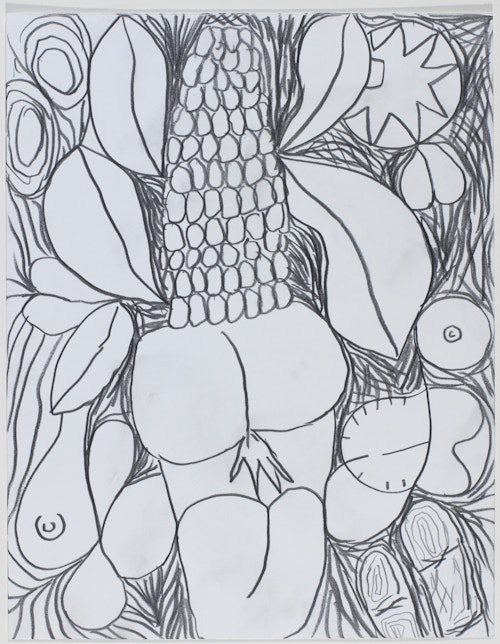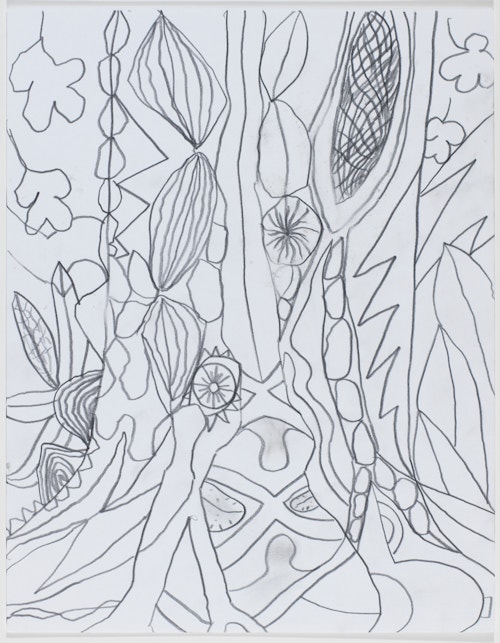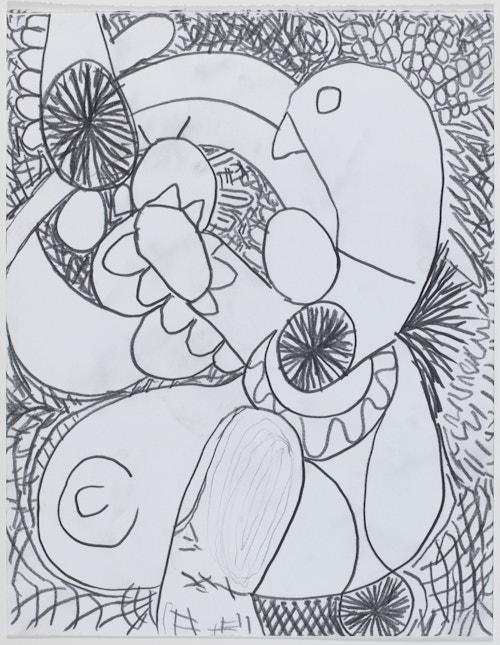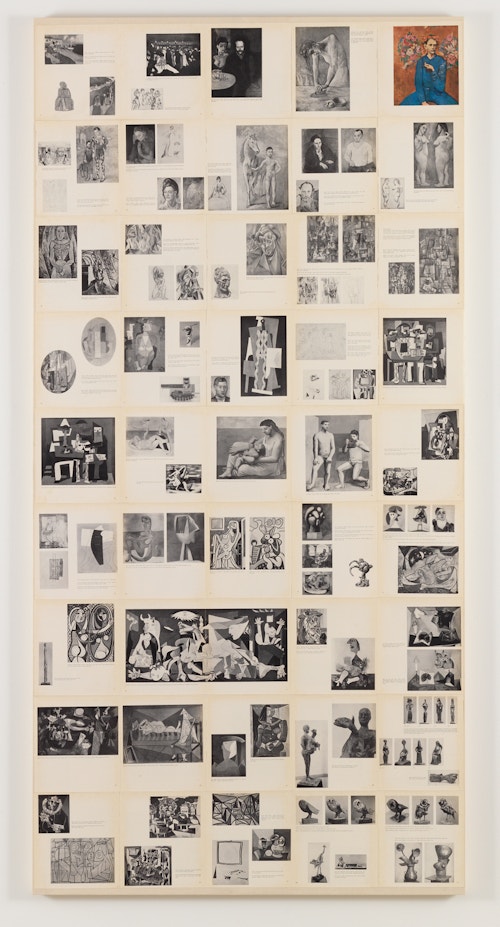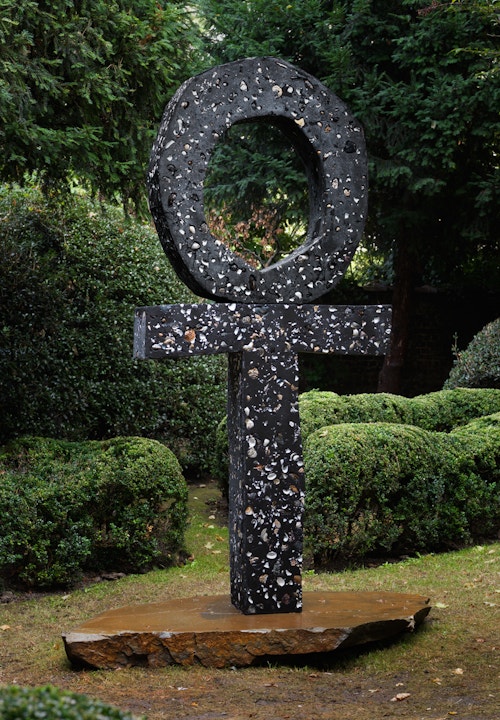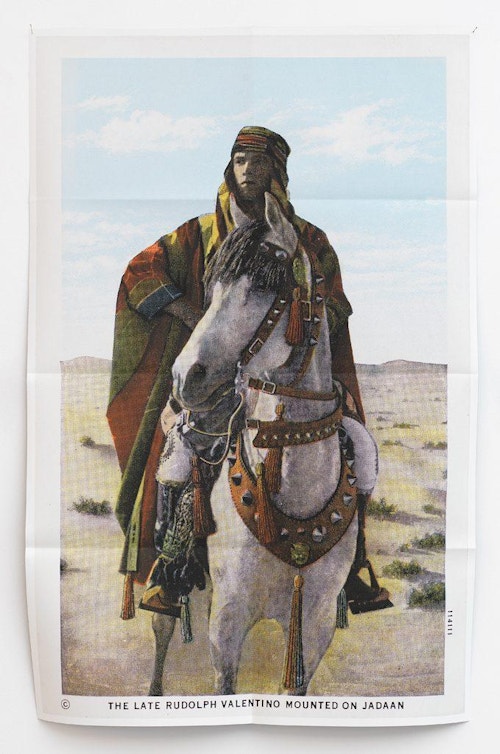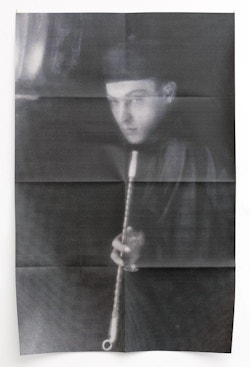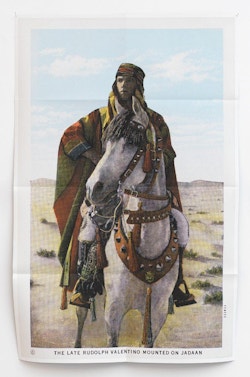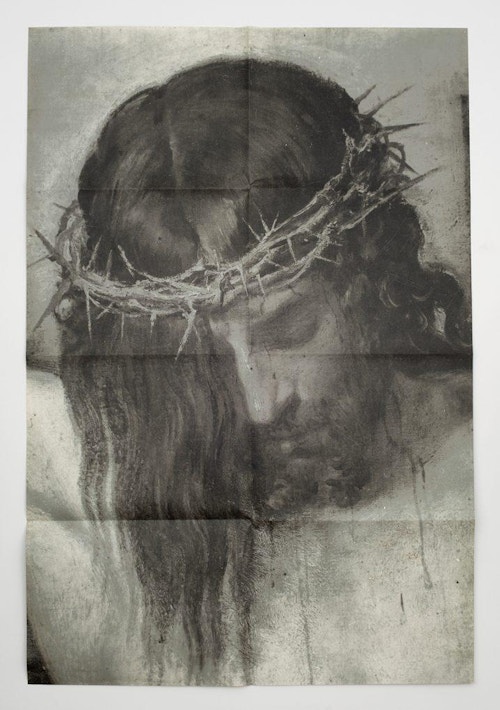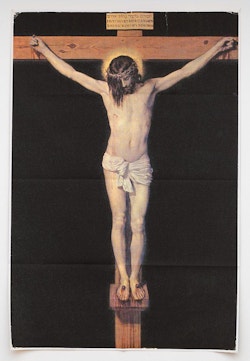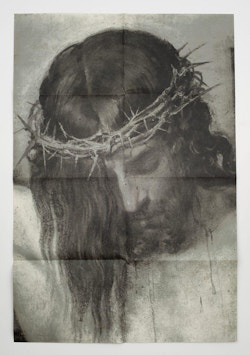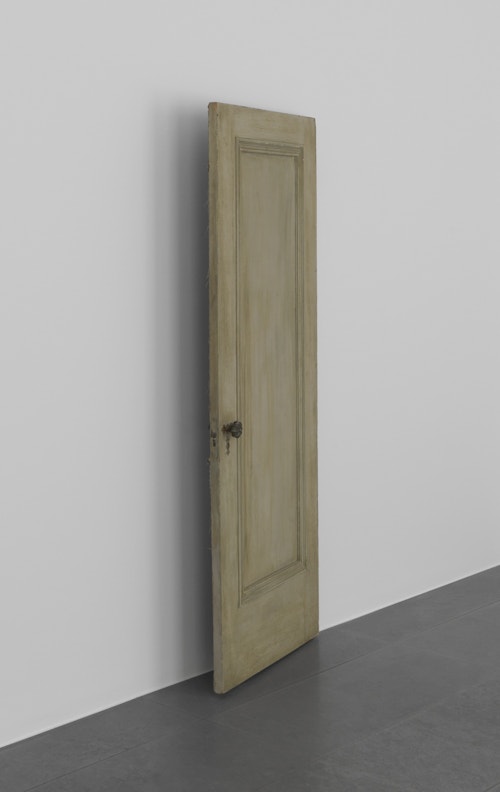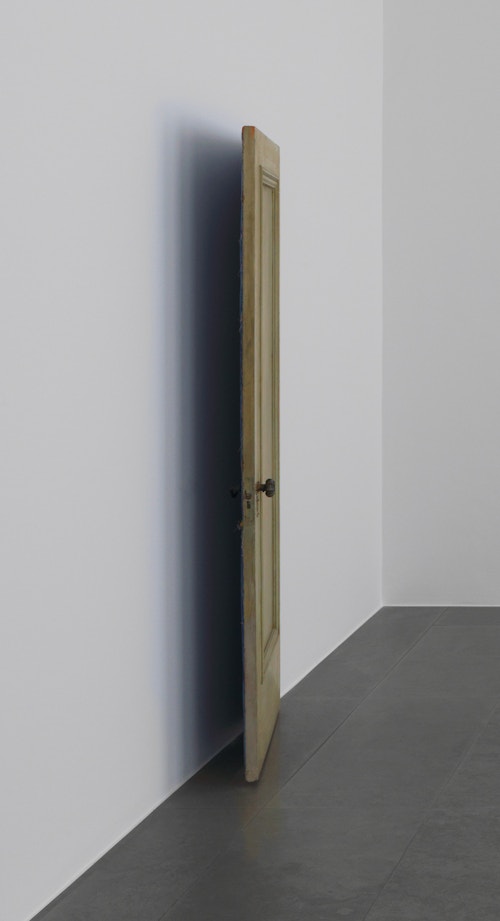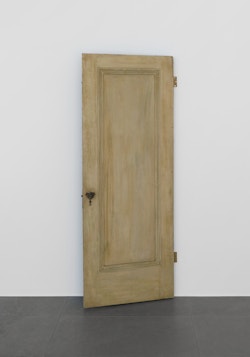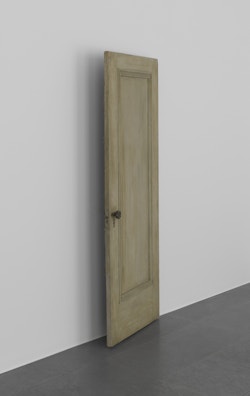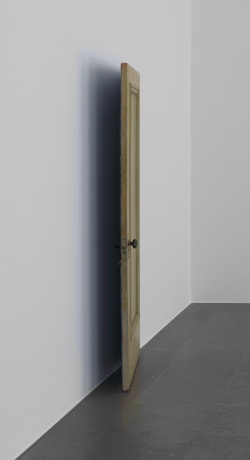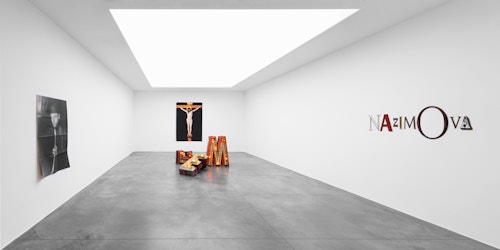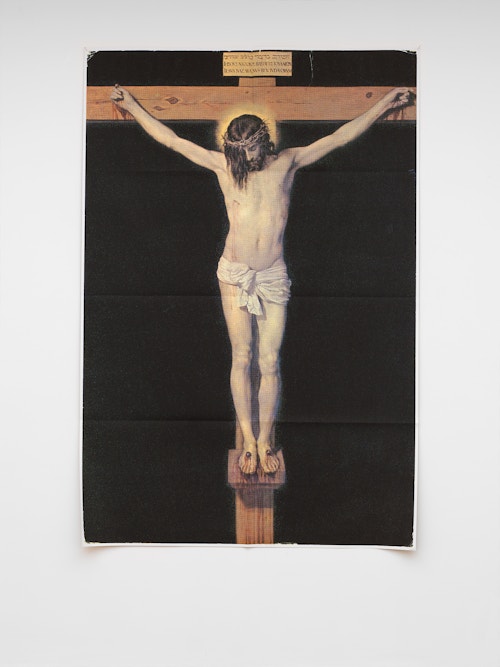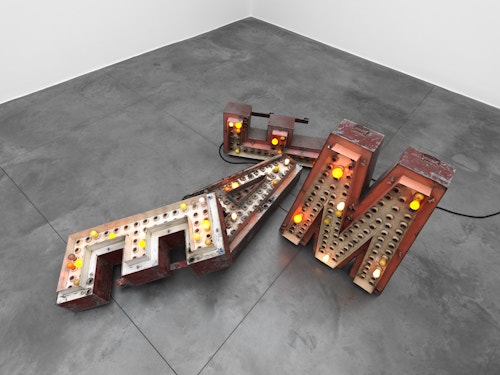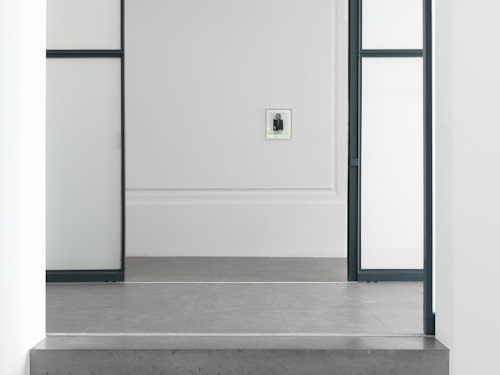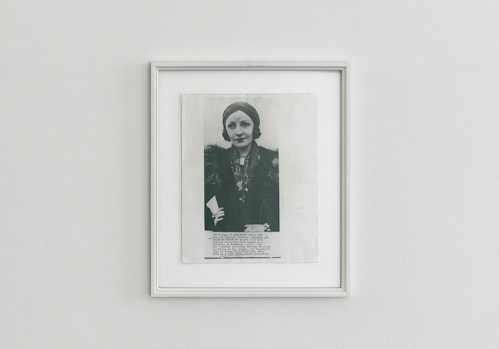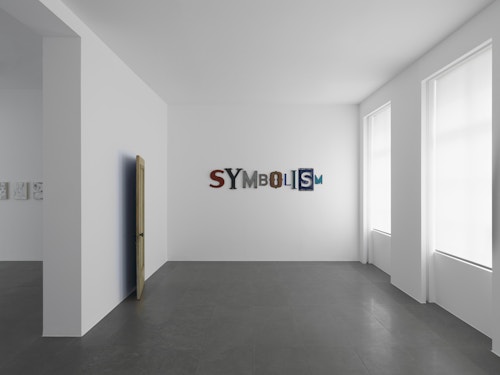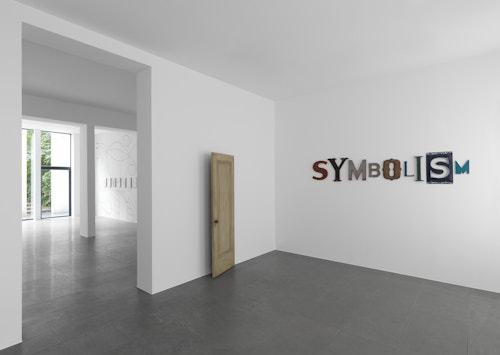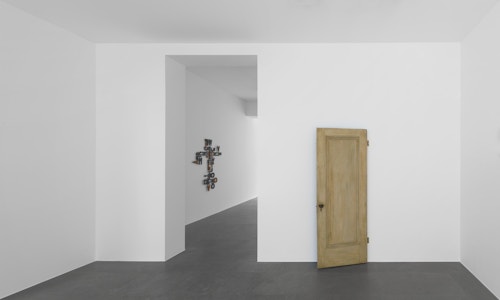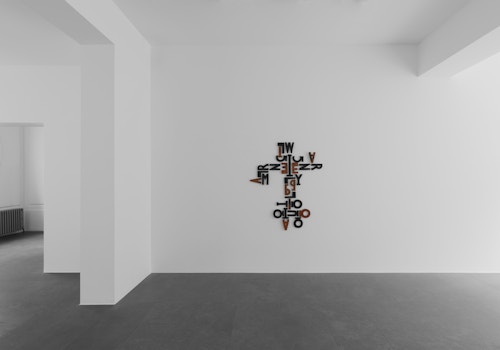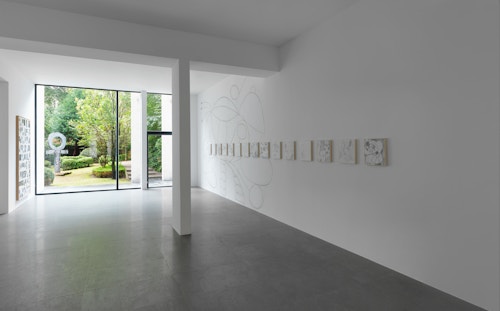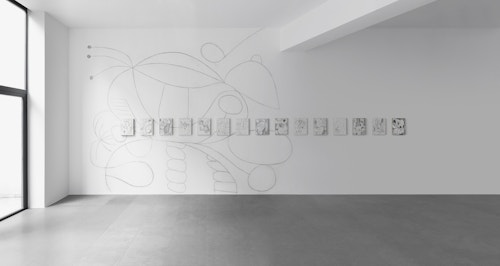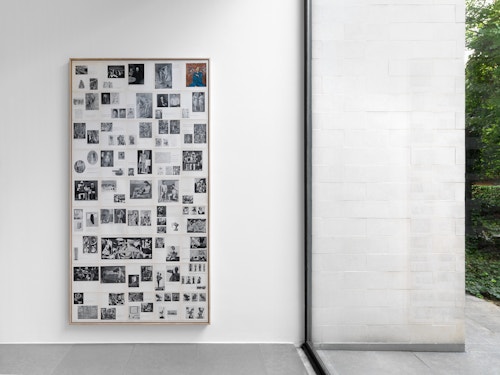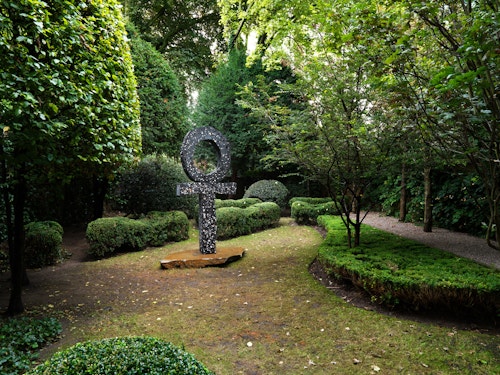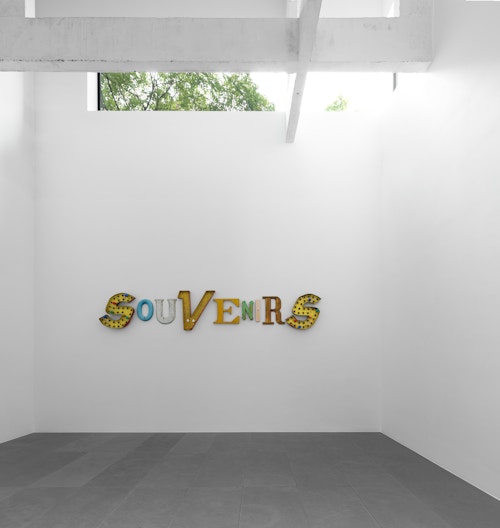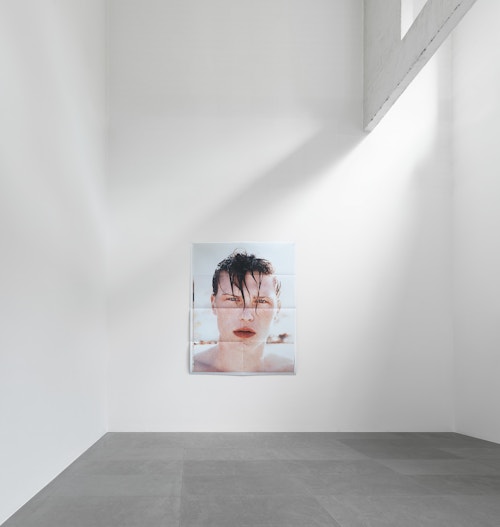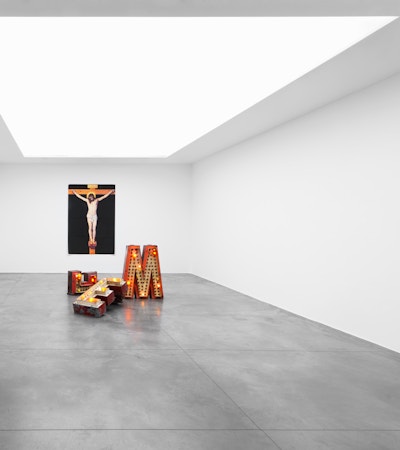
Jack Pierson Jesus and Nazimova
For his third exhibition with Xavier Hufkens, Jack Pierson (b. 1960, Plymouth, Massachusetts) explores the complex emotional narratives surrounding historic and contemporary icons and iconography, and has created a new body of work that can be read as a melancholic hymn to the subject of art and creation, fame, immortality and the passage of time.

Central to the exhibition are two emblematic ‘Gods of love’: the figure of Jesus (represented by a life-size photograph of the famous crucifixion by Velázquez in the Prado) and Rudolph Valentino (1895-1920), one of the great early 20th century sex-symbols and star of the silent screen. Valentino’s sudden death aged 31 triggered mass hysteria and propelled the actor to mythical status. Although Valentino is never explicitly referred to in the exhibition, he has an emotional and physical presence in A Door from Falcon Lair, a door from the actor’s house. Created from random found letters, Pierson’s word sculptures are undeniably contemporary, yet steeped in nostalgia and the words they make (Nazimova, Fame, Symbolism, Souvenirs and Last Century) can also be interpreted through the prism of Valentino’s life and times.
Nazimova refers to the Russian-born Hollywood actress Alla Nazimova (1879-1945) who had a love affair with Valentino’s second wife, the American silent film costume and set designer Natacha Rambova. It has been suggested that, like Nazimova, Valentino was gay despite being twice married and divorced. However, at the time of his death he was allegedly dating the actress Pola Negri (1897-1987), who was the subject of an exhibition by Pierson in 2010. In Fame, the viewer is confronted with a hauntingly beautiful object that is also broken and collapsed, thus perfectly evoking, both formally and conceptually, one of several recurrent themes in the artist’s work: the glamour and beauty associated with the Golden era of Hollywood, as well as decay and destruction.
Delving into his own subconscious, the ideas and references explored in Jesus and Nazimova are deeply personal and spring from the artist’s inner intellectual and emotional world. Yet Pierson succeeds in transforming these private impulses into works of art that are, on the one hand, rooted in time and yet, on the other hand, seem to transcend it. The beauty lies in the openness – each viewer brings his own interpretation to the work, one that is generated by their own memories and desire. Like Proust, but using names and images, objects and photographs, drawings and collages instead of words, Pierson evokes the past in order to renew it.

Jack Pierson has widely exhibited in both Europe and America. He has had important solo exhibitions at the Museum of Contemporary Art, Miami (2002) and at the Centre d’Art Santa Monica, Barcelona (2007). A retrospective exhibition of his work was held at the Irish Museum of Modern Art, Dublin, in 2008. His work is in the collections of CapcM (Bordeaux), the Whitney Museum of American Art (NY), the Metropolitan Museum (NY) and the Guggenheim (NY).
